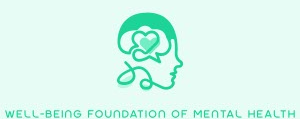Mental Health and Ageing
In observance of the United Nations International Year of the Older Person Towards a Society for All Ages, the theme of this year’s World Mental Health Day Planning Kit is Mental Health and Ageing. This is truly a global concern. As the UN’s International Plan on Action on Ageing states:
-
A marked increase in the population over the age of 60 years is expected in the future, particularly in the segment of those aged 80 years and over: In many countries, the increase in the proportion of the over-60 population is expected to become apparent over the next few decades, and especially during the first quarter of the twenty-first century, and increasingly women will constitute the majority of these elderly populations.
-
The issue of the ageing of populations, with its vast implications both for overall development at the national level and for the welfare and safety of older individuals, is therefore one which will concern all countries in the relatively near future; it already affects some of the more developed regions of the world.
As outlined in the United Nations Principles for Older Persons (a copy is included in the back of this kit), every individual, regardless of age, has the right to independence, participation, care, self-fulfillment and dignity. Of special concern to older persons are stigma and the negative stereotyping that has been associated with growing older. Health care matters related to ageing include everything from disease prevention awareness to the personal and family decisions which must be faced when dealing with a terminal illness.
Some older individuals have no benefits or pension. Historically, women have functioned as the family’s care provider. Without a record of salaried activities outside of the home, their contribution to society may go largely unrecognized. An elderly woman with no entitlement to an old-age or widow’s pension may be forced to live out her last years in poverty and ill health. Men, who have traditionally taken on the role of family breadwinner, may find themselves facing a mandatory retirement before they are ready or willing to stop working.
Since the middle of this century, an increase of twenty years has been added to the average worldwide life-expectancy. Today’s elders are the pioneers of this extension, finding new ways to extend not only the quantity, but the quality of their lives. Even the terminology that identifies those over 60 — such as “older persons” “the aged”, “the elderly”, “seniors”, “the third age”, and, for individual’s who are older than 80, “the fourth age” — reflects a re-defining in global attitudes towards ageing.
There are many older persons who are financially stable and physically strong. But there are also many who do not have adequate means of economic and/or medical support, and in times of social restructuring, or environmental disruption, they may be among the most venerable and unprotected members of society.
Mental Health and Ageing
It has been estimated that by 2030, one out of every three people in industrialized countries will be over the age of 60. The very structure of the family is changing. Declining fertility and mortality have combined so that one child, two parents, four grandparents, and additional great-grandparents make up an “inverse family pyramid”, a reverse of the ever-broadening generational pattern that has been standard since earliest times.
As we prepare for these shifts in the population, we, as global citizens, also need to re-evaluate our focus. Misrepresentation in the media, prejudice and stigma, cultural preoccupation with youth — all contribute to a view of ageing that is inaccurate and damaging. In looking ahead to the next millennium, the optimum utilization of the wisdom and expertise of elderly individuals will be in the best interest of every one of us. The UN’s International Plan on Action on Ageing goes on to state that:
The human race is characterized by a long childhood and by a long old age. Throughout history this has enabled older persons to educate the younger and pass on values to them; this role has ensured man’s survival and progress. The presence of the elderly in the family home, the neighbourhood and in all forms of social life still teaches an irreplaceable lesson of humanity. Not only by his life, but indeed by his death, the older person teaches us all a lesson. Through grief the survivors come to understand that the dead do continue to participate in the human community, by the results of their labour, the works and institutions they leave behind them, and the memory of their words and deeds. This may encourage us to regard our own death with greater serenity and to grow more fully aware of the responsibilities toward future generations.
A longer life provides humans with an opportunity to examine their lives in retrospect, to correct some of their mistakes, to get closer to the truth and to achieve a different understanding of the sense and value of their actions. This may well be the more important contribution of older people to the human community. Especially at this time, after the unprecedented changes that have affected humankind in their lifetime, the reinterpretation of life-stories by the aged should help us all to achieve the urgently needed reorientation of history.
Participants in World Mental Health Day 1999 are invited to celebrate this year’s theme, “Mental Health and Ageing” as a focal point for their activities. More information on the International Year of Older Persons (IYOP) may be found through the National Focal Points on pp. 25-33, through the Sources of Information listed on pp. 61-62 or through the United Nations Principles for Older Persons provided in the back of this kit.
